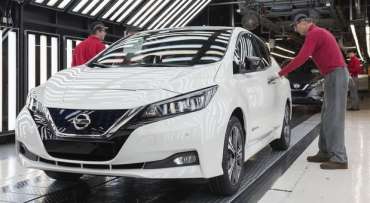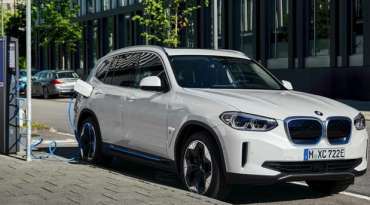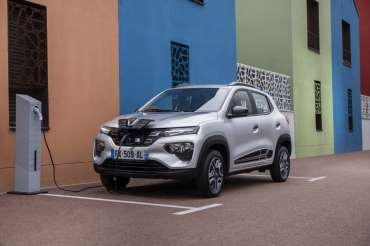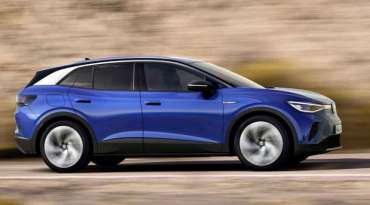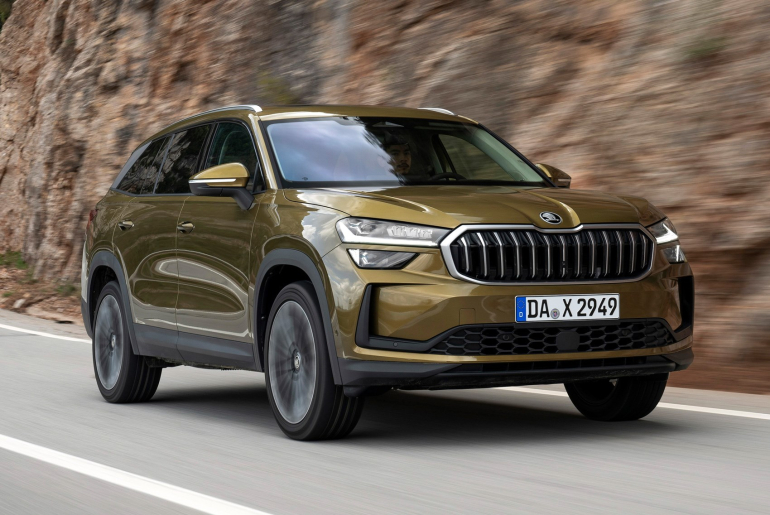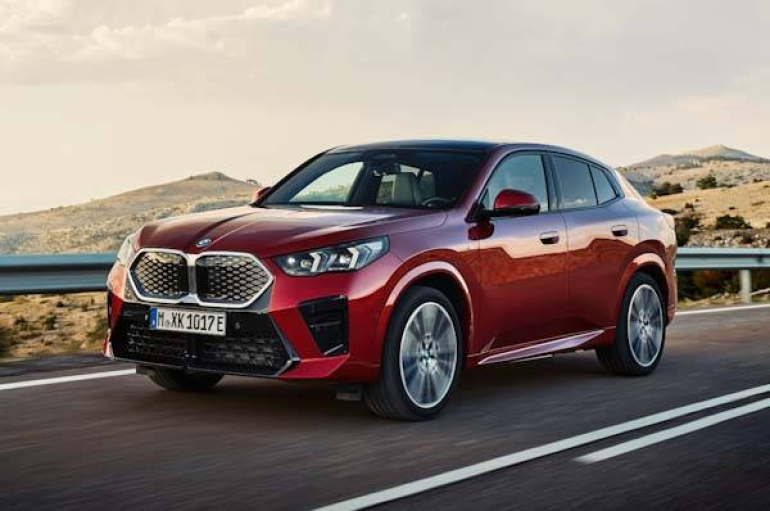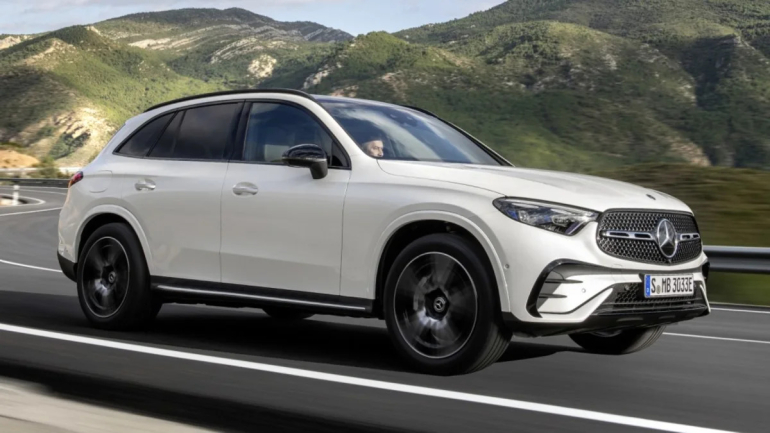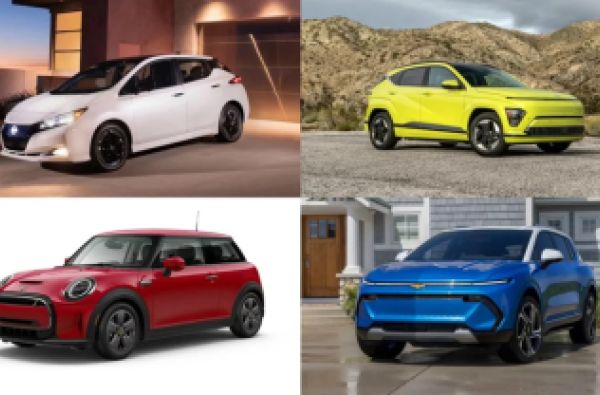Displaying items by tag: Electric cars
UK: Penalties for manufacturers who do not have enough electric models
The United Kingdom will soon become the European leader in the field of reducing harmful gas emissions. As part of a revised Net Zero strategy, British government ministers have announced that they will create up to 440,000 jobs over the next ten years and free up £ 90bn for additional investment.
One of the ten key priorities is the complete electrification of the vehicle fleet, for which the Government intends to allocate around 1.62 billion pounds, and which, along with subsidies for the purchase of ecological vehicles, includes progress in the infrastructure of public charging stations, especially on local roads, Jutarnji writes. hr.
The recently presented plan to completely ban the sale of all cars that emit harmful gases by 2030, has now become even more ambitious. The ministers plan to achieve a faster transition by reducing the number of cars in cities and increasing distribution among users, generous subsidies, but also an unpopular move - penalties for car manufacturers who do not do enough to completely abolish cars powered by internal combustion engines.
Manufacturers who adhere to the new strategy will be rewarded by the Government with different types of loans, often non-repayable, and those who do not produce enough EV models - the Government will punish. The goal is to force manufacturers to sell an increasing number of zero-emission models, and the application of stricter criteria has been announced for 2024.
Critics of the new strategy point out that it is not good, because the ministers 'did it' under public pressure ahead of the Cop26 climate summit, which starts in Glasgow in two weeks. Also, the Government is criticized, which, despite great promises, in practice does not help potential buyers because it constantly reduces their benefits and subsidies.
In the UK, you can get a discount on the price of brand new low-emission vehicles through government support to agents and manufacturers who reduce the price of the vehicle by the amount of that subsidy. The maximum support for cars is £ 2,500, and to qualify for a grant, cars must cost less than £ 35,000.
The amount of support depends on the category in which the vehicle is located, and they include cars, motorcycles, mopeds, small and large vans, taxis and trucks.
Study: Electric cars more expensive to repair than gasoline and diesel
The key questions with electric cars are whether they are more prone to self-ignition than gasoline and diesel and how much their repairs cost after accidents or breakdowns. Allianz tried to answer all that with a big study.
According to the HAK Review, according to a study conducted by Allianz, electric cars are significantly more expensive to repair after accidents than conventional cars. Accordingly, in casco insurance, the average claims costs for purely electric cars are ten percent higher, and for plug-in hybrids the bills are as much as 50 percent higher. In Allianz, they did not state, but we can assume that the biggest problem with plug-in hybrids are the batteries, which are located in the rear of the vehicle and are certainly sensitive to rear-end collisions with cars. In electric vehicles, the battery is in the floor and is a little more protected.
Batteries in electric cars cost up to 20,000 euros and each repair is extremely expensive. This is something you should also think about when buying a used electric car, which is out of warranty.
Unbelievable, but some manufacturers prescribe the replacement of batteries on electric vehicles after activating the airbags. A set of cables in electric cars can cost around 7,000 euros, so some manufacturers equip them with protective covers so that they are not bitten by kuna, mice and other mammals that they see as a meal.
Finally, according to the study, electric vehicles do not break down more than petrol and diesel and are not more prone to self-ignition.
Cheap electric cars are arriving: How much will it cost and who is at stake
The European automobile industry had to react, because American Tesla is leading in the sale of electric cars in Europe, and the arrival of cheap Chinese e-vehicles has been announced. That is why a new step forward has been made. In the coming years, several large manufacturers from the Old Continent will offer a series of introductory, ie affordable electric models. The competition will be fierce, and users will benefit the most. See who is in the game, what is coming to us, when and at what price.
If we leave out the completely new four-wheel drive segment popularized by the Renault Twizzy, and now the Citroen Ami and Opel Rocks-E, electric vehicles have remained in a higher price range. True, more affordable models have come in the meantime, like the electric Corsa and the new Renault Zoe, but these are models that manufacturers don’t like.
Namely, they earn minimally on them, and even lose money, just as was the case with Fiat and its electric model 500.
That is why many have embarked on a drastic turn, which means offering urban vehicles as cheaply as possible, writes Index.hr.
It was Fiat with the Panda that first appeared, which, true, we are still waiting for. Knowing the Italian car industry, it will be an affordable and beautiful car, starting in 2024. The only cheaper one will be the Dacia e-Spring, an extremely simplified city car that will start in France with around 12,000 euros with incentives.
At the recent Munich Motor Show, Volkswagen announced the successor to the e-Up! Electric model. The working name is ID.Life, and it is very likely that it is ID.2, the first electric Volkswagen that will cost less than 20,000 euros, sometime in 2025.
Renault has Zoe on whom it loses money, but it will not on the successor. The first is the Renault 5, and it is coming in 2023. This model will also cost less than 20,000 euros, and will offer decent performance and range. If we include subsidies here, the new Renault 5 could be a bestseller.
All in all, if the production versions are usable enough in terms of range, charging time and comfort, and maintain the substantial amounts of subsidies that apply in Europe, these cars could become a new hit and crucial for individual manufacturers.
How much electricity does an electric car lose in a traffic jam ?!
The operation of petrol or diesel in traffic jams consumes fuel, and this process has been reduced by start / stop devices. However, what about electric cars, if, for example, you get stuck in a busy avenue?
According to HAK Magazine, the British consumer protection organization Which? dealt with the matter. Is the consumption of devices such as air conditioning, radio or tablet included so high that you need to turn them off while standing, especially if your battery is near the end?
For field testing, the Volkswagen ID.4 was stopped for more than an hour with the lights on. Air conditioning and seat heating were at the highest setting. Music was also played, and the video was played on two screens in the back. The impact on energy consumption has been shown to be small. After an hour and a quarter, there was a loss of only 2 percent of capacity, or 13 kilometers of range.
Research shows that only a very small portion of an electric car's battery is used to maintain comfort and entertainment in the car. Which? warned that the test was conducted in the summer and noted that the capacity of the batteries could decrease faster if it is colder because the batteries will not work optimally. The consumer organization will therefore soon repeat the test in winter conditions.

